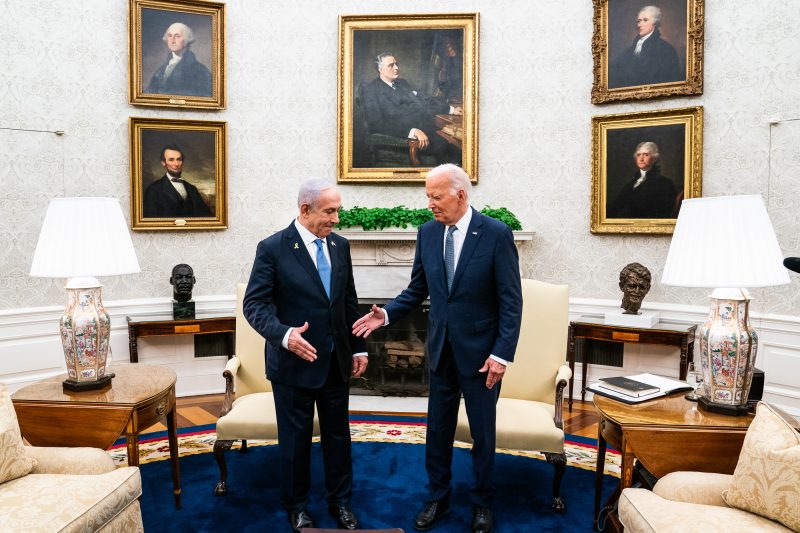
Critics Slam Netanyahu’s U.S. Visit for Lacking a Viable Peace Plan
The recent visit of Israeli Prime Minister Benjamin Netanyahu to the United States has sparked debate among critics who have expressed skepticism regarding the viability of the proposed peace plan. Despite discussions and meetings, there seems to be a prevailing sentiment that no concrete and workable plan for peace has been put forth.
One of the main criticisms that have emerged from the visit is the perceived lack of substantial progress towards resolving the longstanding conflict between Israel and Palestine. Critics argue that the current approach appears to be more about managing the conflict rather than actively seeking a viable solution that addresses the core issues at the heart of the dispute. The absence of a clear roadmap or strategy for achieving lasting peace has left many observers questioning the effectiveness of the diplomatic efforts being undertaken.
Moreover, there are concerns about the unilateral decisions being made by the Israeli government, particularly regarding settlements in the West Bank. The continued expansion of settlements has been a major point of contention in the peace process, as it undermines the prospects for a two-state solution and perpetuates tensions on the ground. Critics argue that without a genuine commitment to halting settlement expansion and engaging in meaningful negotiations with the Palestinian leadership, any attempts to achieve peace will be futile.
Another key issue that has been highlighted by critics is the lack of inclusivity in the peace process. The absence of meaningful engagement with key stakeholders, including the Palestinian leadership and other regional actors, raises questions about the legitimacy and efficacy of any proposed peace plan. Inclusive dialogue and cooperation are essential components of any successful peacebuilding effort, and the exclusion of important parties from the negotiation table only serves to further complicate the path towards achieving a lasting resolution.
Furthermore, there is a growing concern about the role of external actors in influencing the peace process. The involvement of third-party countries and entities in shaping the terms of any proposed peace agreement has raised suspicions about hidden agendas and ulterior motives that may not necessarily align with the interests of the parties directly involved in the conflict. Critics argue that a truly sustainable peace can only be achieved through a transparent and inclusive process that prioritizes the needs and concerns of the Israeli and Palestinian people.
In conclusion, the visit of Benjamin Netanyahu to the United States has shed light on the challenges and complexities surrounding the pursuit of peace in the Middle East. While diplomatic efforts and dialogue are essential components of any peace process, critics maintain that without a clear and workable plan that addresses the core issues, involves all relevant stakeholders, and upholds the principles of transparency and inclusivity, the prospects for achieving lasting peace remain uncertain. As the debate continues, it is evident that a renewed commitment to genuine dialogue, cooperation, and compromise will be necessary to overcome the obstacles and forge a path towards a peaceful and sustainable resolution to the Israeli-Palestinian conflict.
